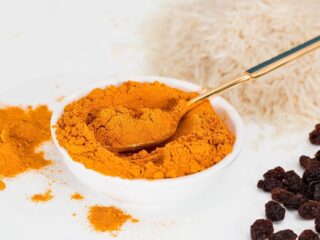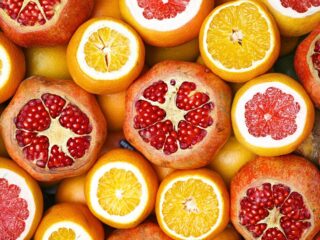Vitamin B6 Rich Foods: Importance, Deficiency, and Sources
Vitamin B6, also known as pyridoxine, is an essential nutrient that plays a crucial role in maintaining a healthy body. It is involved in various bodily functions, including metabolism, brain development, and immune system function. While vitamin B6 deficiency is relatively rare, it is important to ensure an adequate intake of this vitamin to support overall well-being.
The Importance of Vitamin B6
Vitamin B6 is involved in over 100 enzymatic reactions in the body, making it essential for overall health. It plays a key role in the metabolism of proteins, carbohydrates, and fats, helping convert food into energy. Additionally, vitamin B6 is necessary for the production of neurotransmitters such as serotonin and dopamine, which regulate mood and behavior.
Furthermore, vitamin B6 is crucial for the proper functioning of the nervous system. It helps in the synthesis of myelin, a protective coating around nerve fibers, and supports the production of red blood cells. Vitamin B6 also aids in the regulation of homocysteine levels, an amino acid that, when elevated, may increase the risk of heart disease.
Symptoms of Vitamin B6 Deficiency
A deficiency in vitamin B6 can lead to various symptoms and health issues. Common signs of deficiency include rashes around the nose, cracked lips, and a swollen tongue. Neurological symptoms may also occur, such as confusion, depression, and irritability.
Lesser-known signs of vitamin B6 deficiency include inflammation, impaired control of fatty acids, and neurotransmitter deficiencies. Some studies suggest that inadequate vitamin B6 levels may increase the risk of autism and gut pathogens. However, further research is needed to establish a definitive link.
Sources of Vitamin B6
There are several food sources that are rich in vitamin B6. Including these foods in your diet can help ensure an adequate intake of this essential nutrient:
- Beef: Beef is a great source of vitamin B6, with 100 grams providing approximately 0.5 milligrams of the vitamin.
- Pork: Pork is another excellent source of vitamin B6, with similar levels as beef.
- Fish: Fish, such as salmon and tuna, are not only rich in omega-3 fatty acids but also contain vitamin B6.
- Chicken: Chicken is a lean source of protein that also provides vitamin B6.
In addition to these animal-based sources, there are also plant-based foods that contain vitamin B6:
- Potatoes: Potatoes, particularly the skin, are a good source of vitamin B6.
- Spinach: Leafy greens like spinach are not only rich in iron but also contain vitamin B6.
- Bananas: Bananas are not only a convenient snack but also provide a small amount of vitamin B6.
- Avocado: Avocado is a nutrient-dense fruit that contains vitamin B6.
It is important to note that the vitamin B6 content in foods may vary depending on factors such as cooking methods and storage. To ensure optimal vitamin B6 intake, it is recommended to include a variety of these foods in your diet.
Causes of Vitamin B6 Deficiency
Vitamin B6 deficiency can occur due to various factors. One common cause is a diet high in processed foods, which may lack essential nutrients, including vitamin B6. Additionally, certain medications like diuretics and antibiotics can interfere with the absorption or utilization of vitamin B6.
Individuals with specific conditions or lifestyle factors may also be at a higher risk of vitamin B6 deficiency. These include pregnant women, smokers, and those exposed to herbicides. It is important for these individuals to pay extra attention to their vitamin B6 intake and consider supplementation if necessary.
Conclusion
Vitamin B6 is an essential nutrient that plays a vital role in maintaining a healthy body. It is involved in various bodily functions, including metabolism, brain development, and immune system function. While deficiency is rare, ensuring an adequate intake of vitamin B6 through a balanced diet is important for overall well-being.
Include vitamin B6-rich foods such as beef, pork, fish, chicken, potatoes, spinach, bananas, and avocados in your diet to meet your body’s requirements. If you suspect a deficiency or have specific risk factors, consult with a healthcare professional to determine the best course of action.



